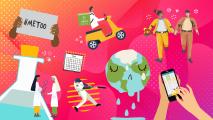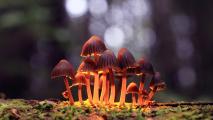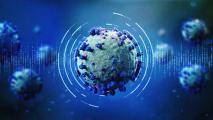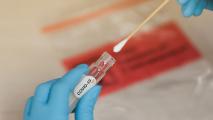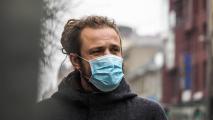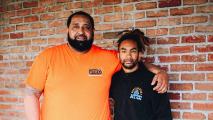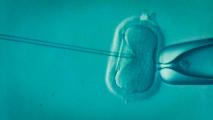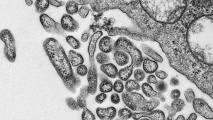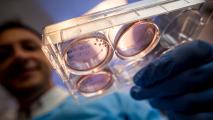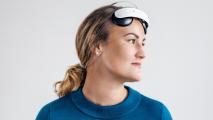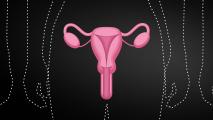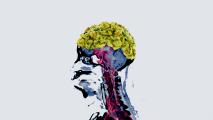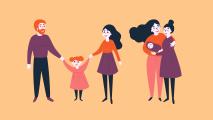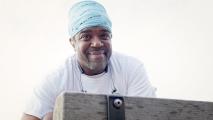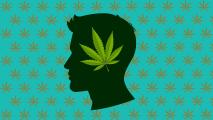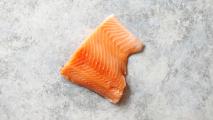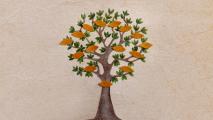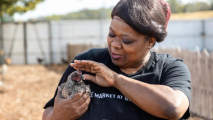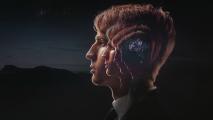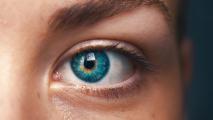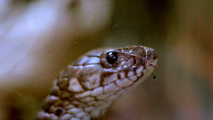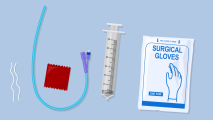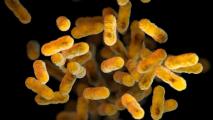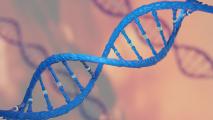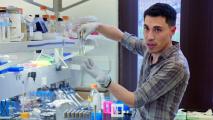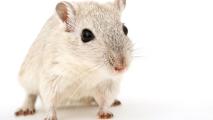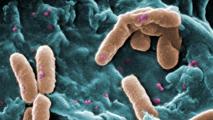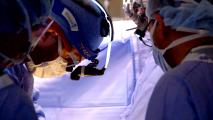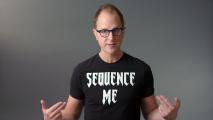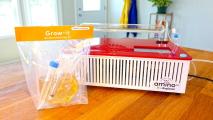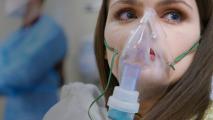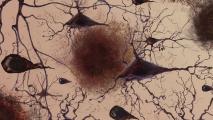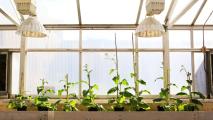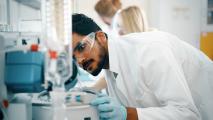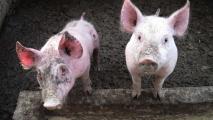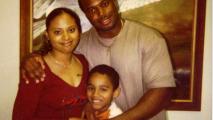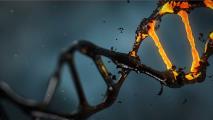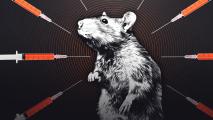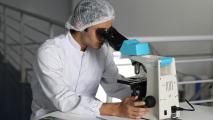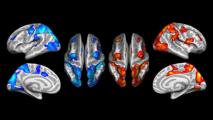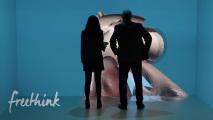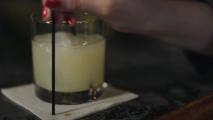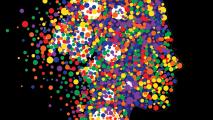Showing 809 results
9 ways the 2010s decade changed the world
From Tinder to CRISPR, these are the top moments, movements, and ideas through which the 2010s decade shaped the world as we know it.
Blood enzyme could explain severe impact of coronavirus in men
A new study suggests that higher concentrations of the ACE2 blood enzyme could explain the particularly deadly impact of the coronavirus in men.
Take a trip to Johns Hopkins' new psychedelic research center
Johns Hopkins is throwing its considerable clout behind the fast-growing field of psychedelic research, pouring $17 million into a research center to study the hallucinogenic drugs.
Why scientists are turning the coronavirus’ structure into music
MIT scientists have translated a key part of the coronavirus’ structure into music — and the song could help researchers find a way to stop the virus.
Qualified immunity might not protect police for much longer
The U.S. government is considering changes to qualified immunity, a doctrine that protects police from civil lawsuits.
Computer scientists build new tool to fight coronavirus
Computer scientists are using AI and text mining to sort through thousands of coronavirus research papers that could help fight the disease.
New study boosts case for at-home coronavirus tests
A new study eliminates one major argument against at-home coronavirus tests: that patients won’t be able to collect usable samples themselves.
The long-term health effects of COVID-19
As their numbers swell, some survivors are reporting long-term health effects of COVID-19.
Can friendship keep at-risk youth off the streets?
In partnership with Stand Together
Carlos felt addicted to the thrill of crime at a young age. Today, he yields a different, positive influence on the streets with UTEC.
Series|
Catalysts
The mental health movement for Chicago’s inner city youth
In partnership with Stand Together
A remarkable transformation is taking place in several inner-city Chicago schools, and it's resulting in fewer gangs, drugs, and homicides. Could this new model of group therapy be the cause, and is it scalable?
Cancer survivor gives birth thanks to a new fertility procedure
A French cancer survivor is the first person to give birth via a fertility treatment that involves freezing and thawing eggs that underwent in vitro maturation.
Stimulating monkeys’ brains snaps them out of unconsciousness
Researchers found that they could induce a state of consciousness in an unconscious monkey by electrically stimulating a specific part of the animal’s brain.
The mission to reunite homeless with their families
Volunteer digital detectives are helping homeless people reunite with their families.
A deadly virus emerged in South Africa in 2008. Then it vanished.
A deadly new virus killed a South African safari agent and three others, then disappeared without a trace. What can we learn from a unique outbreak?
The formerly incarcerated fighting for criminal justice reform
In partnership with Chan Zuckerberg Initiative
These formerly incarcerated individuals are fighting to give people who’ve served their time a second chance by advocating for change in one of the country’s most notorious justice systems.
Algorithm clears thousands of marijuana convictions in just one minute
With this new system that identifies candidates for criminal record clearance and even auto-fills forms, offenders don’t even need to apply.
Should we legalize gangs?
Gangs are a major cause of violence and organized crime. Here’s why countries should think twice before trying to...
Your new sex ed teacher is a chatbot
This chatbot is filling in gaps in sex education by talking with teens to answer awkward questions about topics like health, sexuality, and identity.
Scientists grew a mini brain in a lab. It has human-like brain waves.
For the first time, a lab-grown mini brain has brain waves. Researchers can now launch new ways to study brain disorders. But the question of consciousness in the brain-like organoid could raise concern.
Why drugs are hurting more people than ever – and what to do about it
Is the solution to dangerous drugs... making them safer?
Treating depression at home with a tDCS headset
At-home tDCS headsets are helping people treat their depression without having to go to a doctor’s office.
Scientists sidestep restrictions on cannabis research by taking their lab mobile
This mobile lab, run by scientists at the University of Colorado Boulder, is one of several workarounds developed...
Shedding the stigma of substance use
In partnership with Stand Together
By achieving fitness goals together, The Phoenix community is peeling off the shame, regret, and stigma often associated with addiction.
Series|
Future of Fertility
Uterus transplants: A step closer to overcoming infertility
About 1 in 500 women have a condition that prevents pregnancy called absolute uterine factor infertility, but recent developments show promise that a uterus transplant surgery could be the solution.
Old Skool Café provides an alternative to gangs and violence
In partnership with Stand Together
As a former prison guard, Teresa Goines watched kids drift in and out of the justice system. Now she runs a jazz-themed eatery that hires at-risk youth and gives them a place to learn and grow.
The strange science of sports recovery with Christie Aschwanden
From infrared pajamas to cryo chambers, athletes swear recovery methods give them an edge on the playing field. But what does science have to say about it?
How Old Skool Café helped this teenager overcome adversity after trauma
In partnership with Stand Together
After suffering a violent gang beating, Desiree Maldonado experienced major medical and emotional issues. She turned from a shy and nerdy 14-year-old kid to a hard and angry rebel. This is how one restaurant job changed her trajectory.
Series|
Dope Science
Cannabis as a natural treatment for autism
When typical medications simply aren’t doing enough to manage their children’s symptoms, mothers like Jenni Mai are turning to medical marijuana. But with current regulations, parents are having to become pharmacists for their own families, and some are even moving across the country so they can legally access cannabis.
Series|
Future of Fertility
IVG: making babies from skin cells
The designer babies of the future are closer than we think. With a new process called IVG, a person could essentially choose their baby’s traits, and same-sex couples could make a biological family.
Series|
Catalysts
Racing out of homelessness
This running club that meets at 5:45am is helping the homeless transform their lives.
Nature is good for you. What about VR nature?
Nature has the power to reduce stress and enhance our moods. Can VR nature experiences be a substitute for physically spending time in the outdoors?
Marijuana and autism: Removing the stigma
Research is beginning to prove the hopeful connection between marijuana and autism treatment for symptom relief. Here is one man’s inspiring story.
Can cognitive behavioral therapy break the cycle of violence?
CBT is a promising way to reduce violence, so why has it been so hard to scale?
Breaking the taboo of male infertility
Male infertility contributes to up to half of infertility cases. Why is it so hard to talk about?
Training the body to fight off drug-resistant bacteria
A new strategy, called host-targeted defense, could help solve antibiotic resistance by upgrading the immune system.
The first GMO salmon is coming to a store near you
After a 30-year struggle, Atlantic salmon modified with a growth hormone gene from Chinook salmon has been approved by the FDA. Its producers say it solves problems related to climate change, ocean pollution, and food scarcity. Skeptics call it playing god. Both call it the Frankenfish.
Do we need more police or better police?
American cities are safer than they used to be, but they’re still quite violent, and many economists think they’re...
The fight to end illegal logging
Citizen scientists are collecting tree samples to build a genetic database that will help identify the origins of stolen lumber and stop illegal logging.
Finding a new drug in one-third the time and one-thousandth the cost
How a pediatric cancer drug went from discovery to clinical trials in five years and just $500,000.
For childhood cancer survivors, adult fertility isn’t a given
Experimental procedures offer beta solutions for girls, and more time to figure it out for boys.
This urban farm in Dallas grows financial and social opportunities for residents
In partnership with Stand Together
A once impoverished and isolated neighborhood in South Dallas is now flourishing thanks to Bonton Farms.
Diving deep into the brain to measure neurotransmitters
Researchers are taking the first measurements of neurotransmitters in active human brains, using computational psychiatry to understand how the mind works.
A tumor-killing virus could treat eye cancer and save children's sight
The only treatment for retinoblastoma is surgical removal of the eye—but scientists may have found another way:...
A dangerous job: Snake milkers risk their lives to save others
A very small number of very daring people are responsible for all of the world’s antivenom.
A day in the life of a 'violence interruptor'
Freethink followed Andre T. Mitchell, the founder of Man Up!, and his violence interrupter team for a day in...
Macgyver medicine can save lives
The package is simple and dirt-cheap—a plastic bag with a condom, a syringe, a rubber tube, and a card with...
Living drugs may be the key to beating genetic disease
Engineering bacteria in the microbiome could fix previously untreatable genetic disorders.
Why did measles explode in 2019?
Humanity is locked in an arms race with diseases: we update our vaccines, and diseases evolve new ways to try to...
Paige and the virus hunter
Drugs couldn’t stop her infection — so she asked Ben Chan to get her a virus, instead.
A "LinkedIn for cancer" helps myeloma patients find help – and hope
The site aims to help scientists discover new treatments – and empower patients to advocate for their own care.
Hacking the brain's comms network – without surgery
When nerve cells in the brain communicate, they create tiny electric fields that can be sensed – and sometimes...
The ride home from prison
The "Ride Home Program" sends drivers to pick up former inmates on their first day of freedom to help ensure a...
A skin graft cures cocaine cravings (in mice)
A CRISPR skin graft looks like a promising way to deliver gene therapy.
What is cystic fibrosis—and what is it like?
What you need to know about this genetic disease, explained by someone who knows it inside and out.
Making tumors glow to improve cancer surgery
This surgeon is improving surgery by lighting up cancer cells.
Why cancer patients should get genetic sequencing
In partnership with Intel
Genomic sequencing saved his live. Now he wants everyone to have access.
Can DIY science (finally) cut the cost of insulin?
A century after its discovery, insulin is still incredibly expensive, but DIY bio-manufacturing could change that...
Fighting superbugs with viruses
This Yale scientist's experimental treatment is a Texas woman's last resort.
The future of healthcare could look a lot like the 1900s
For many cancer patients, being treated at home is just as safe, more affordable, and more convenient than being...
To eradicate TB, we need old-fashioned ambition
The Ebola outbreak sparked more medical innovation in two years than TB has in decades, even though TB is killing...
Why a third of antidepressants are prescribed for "off-label" problems
The "secret life of antidepressants" could open up a host of new treatments.
FDA approves the first marijuana-based drug
The drug has been proven effective at reducing seizures from certain types of childhood epilepsy.
The 2018 Nobel Prize could mark a turning point in the war on cancer
More than one in three people will be diagnosed with cancer during their lifetime; new discoveries are helping them...
New evidence suggests viruses may trigger Alzheimer’s
For the first time in a long time, there's a new direction for potential Alzheimer's treatments.
Why are unsolved murders on the rise?
The evidence suggests that most murderers get away with it. Here's what we can do about that.
FDA approves first mute button for genetic diseases
It is the first of "a wave of advances that have the potential to transform medicine."
Personal genetics might solve the opioid crisis – and the pain crisis
Why does pain hurt more for some people? Why do others feel nothing at all?
The plan to wipe out mosquitoes using genetic engineering
The world's richest and poorest people are teaming up against humanity's deadliest predator.
How the Phoenix is fighting addiction with fitness
In partnership with Stand Together
Meet the group that is helping thousands of people transform their lives and unlock their potential.
Paralyzed mice walk again after breakthrough treatment
One small step for a mouse, perhaps one giant leap for treating spinal injuries.
A hidden benefit of banned antimicrobial soap: Treating cystic fibrosis infections
The FDA banned triclosan from hand soap, but new research shows that it can supercharge old antibiotics.
Robots are mass producing mini-organs
Robots can make hundreds of tiny copies of your organs, allowing doctors to test many different treatments at the...
Series|
Superhuman
Hunting down his son’s killer
For years, there was no diagnosis, no treatment, and no cure — because his son's disease had never been seen before. That wasn't going to stop this dad.
Supercharging photosynthesis can grow 40% more food
We need a lot more calories to feed a growing world, and these scientists may have figured out how to get them.
Science funding is wasting young careers. Here's how to fix it.
Basic science funding is a mess. Fixing it could radically improve the pace of innovation.
Series|
Superhuman
Reprogramming your immune system to fight cancer
Your T cells already know how to kill cancer. These doctors can train them to hunt it down.
Insulin pills could change everything for diabetics
A pill instead of a needle would be the "holy grail" for diabetes treatment.
The cause (and possible cure) for most infertility
Fertility medicine may be on the edge of a breakthrough.
Series|
Superhuman
Can genetically modified pigs be the key to treating rare diseases?
When it comes to rare diseases, doctors often don’t have enough patients to determine the effectiveness of various treatments. Now, scientists are breeding pigs with the same genetic code as people with a disease in order to create a pool of test "patients" unlike any before.
A mother’s wish for her son’s killer
DeVitta Briscoe never had a chance to request a lighter sentence for the man who shot her son.
How coffee could treat diabetes
Someday, diabetics could use caffeine to trigger insulin production, thanks to specially designed kidney cells.
Two billion people have TB. What should we do about it?
In the fight against TB, sometimes it's better to just get along.
Glowing cancer cells could find hidden tumors (and replace mammograms)
A new pill can make cancer cells glow under infrared light, and it could eliminate for mammograms.
The ebola vaccine is still working 2 years later
The vaccine works great at preventing infection—let’s hope it can also prevent media panic too.
Scientists finally get a look at enzyme that protects DNA
We finally have a detailed picture of an enzyme that could play a key role in fighting both aging and cancer
UV robots can sterilize an ICU in 10 minutes
UV light destroys bacterial DNA from the inside out, eradicating the toughest pathogens in minutes.
Precision medicine cured an “untreatable” stage IV breast cancer
Two years ago, she had two months to live.
Unlike smoking, vaping won't mess with your microbiome
Smoking kills off good bacteria and upsets the balance of power your gut.
AI could replace chemical testing on animals
Scientists have developed software that could save one billion dollars (and two million animals) each year.
Series|
Wrong
Did rats start the drug war?
Much of our shared understanding about drugs and addiction came from a series of studies done in the 1950s and 60s...
23andMe can (finally) tell you about your genetic cancer risk
23andMe has won the right to tell you what your genes say about you. It's a landmark legal achievement that could...
Series|
DIY Science
Can coding prevent overdoses?
A group of teenagers in Baltimore have created an app that can notify the public about heroin overdoses and save countless lives
Mental training can heal traumatic brain injuries (and reduce depression)
Millions of people are dealing with traumatic head injuries; brain scans show that cognitive training could...
Rising stars in criminal justice reform
These key players are working from outside the system to lead the criminal justice reform movement.
These bacteria-eating sewer viruses are saving lives
The world discovered phages before antibiotics, but these lowly sewer viruses are getting renewed attention in the...
Series|
Superhuman
Father makes 3D heart for daughter
When a father’s daughter was diagnosed with a heart disease, he set out to design an innovative 3D model of a heart that doctors could explore in virtual reality to save her life and thousands more.
The untold story of Rio’s largest favela
Meet the proud, hopeful, ambitious people determined to build the life they’ve dreamed of.
This week in ideas: Why D.A.R.E. didn't work, the future of cities, and is love actually actually good?
Our weekly take on the best stuff from around the web.
This week in ideas: Fighting addiction with implants, using VR to educate, Amazon Prime gets primer
An arm implant to treat opioid addiction, teaching hair stylists with VR, and a potential Amazon Prime game changer.
